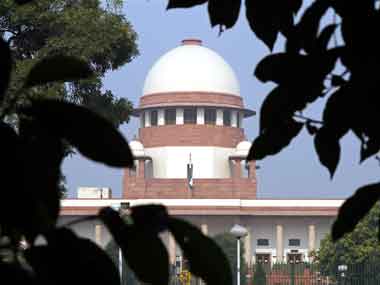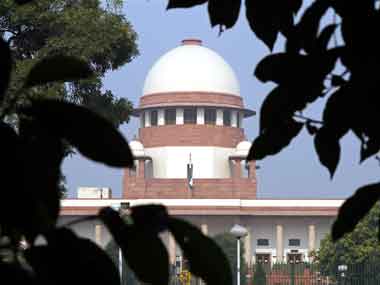The NDA government is hurrying to make sure that that the National Judicial Appointments Commission (NJAC) Bill is passed in Lok Sabha during this session and is already trying to drum up support from opposing parties, according to news reports. The bill once passed would bring an end to current collegium system of appointment of judges. According to a report in The Hindu
, even though a final Cabinet nod is waited for the bill, “the government, however, is said to be keen that a Bill to constitute the NJAC be passed in the current session of Parliament itself.” A report in Indian Express
notes, with parties including BSP, CPI, JD (U), RJD and BJD siding with the BJP, the Congress too could extend support. The report adds that, “Congress, according to the sources, has indicated to government intermediaries that it could back the constitutional amendment if it was the same as formulated by the previous UPA regime.” The government has had two consultations with the various parties and the report adds that in both it has got “the unanimous view that the collegium system needs to change.” The
bill would bring in an constitutional amendment
, and proposes to set up a National Judicial Appointment Committee, which will be headed the Chief Justice of India. Two senior judges of the Supreme Court, two eminent personalities and the Law Minister will be the other members of the proposed six-member body. It should be noted that a constitutional amendment bill requires two-thirds majority, while an ordinary bill requires a simple majority. [caption id=“attachment_1650931” align=“alignleft” width=“380”] Supreme Court of India. Reuters[/caption] The two eminent personalities will be selected by a collegium of Chief Justice of India, the Prime Minister and the Leader of the Opposition in Lok Sabha or the leader of the single-largest opposition party in the Lower House. They will have a tenure of 2-3 years. The government will bring another bill defining the procedures of the proposed Commission along with a constitutional amendment bill which will amend Articles 124 and 217 of the Constitution relating to the appointment of Supreme Court and High Courts judges. However as Upendra Baxi notes in this opinion piece in the Indian Express
, the bill should not change the basic structure of independence of the judiciary. He also questions how the Commission will function noting that,
Supreme Court of India. Reuters[/caption] The two eminent personalities will be selected by a collegium of Chief Justice of India, the Prime Minister and the Leader of the Opposition in Lok Sabha or the leader of the single-largest opposition party in the Lower House. They will have a tenure of 2-3 years. The government will bring another bill defining the procedures of the proposed Commission along with a constitutional amendment bill which will amend Articles 124 and 217 of the Constitution relating to the appointment of Supreme Court and High Courts judges. However as Upendra Baxi notes in this opinion piece in the Indian Express
, the bill should not change the basic structure of independence of the judiciary. He also questions how the Commission will function noting that,
“_If the advice of the CJI and his companion justices is to have an ’edge’ or ‘dominance’, how is it to be achieved? Should the JAC then adopt a weighted voting procedure, not unlike the United Nations Security Council? If the JAC is to decide by consensus, what will happen if the justices do not yield? What if some other eminent members, including the Union law minister, remain recalcitrant? And how much weight, if any, should be given to the Intelligence Bureau reports on prospective candidate_s?”
It should be noted that the Law Commission chief in India has not approved of the Judicial Standards and Accountability Bill, 2012 as it could compromise the independence of the judiciary. While the external independence of the judiciary is a matter for concern, as Faizan Mustafa noted in the Indian Express , the internal independence of the judiciary also needs to be brought back. He had written about how, “A large number of judges were superseded during the last two decades. Several senior most chief justices of various high courts, including Justice Shah himself, were not elevated. Some of the finest judges were brought in late to ensure they did not become CJI.” The government currently is keen to ensure that the collegium system is scrapped and the new body comes into existence. It remains to be seen whether it will get the two-third majority in both houses.
)